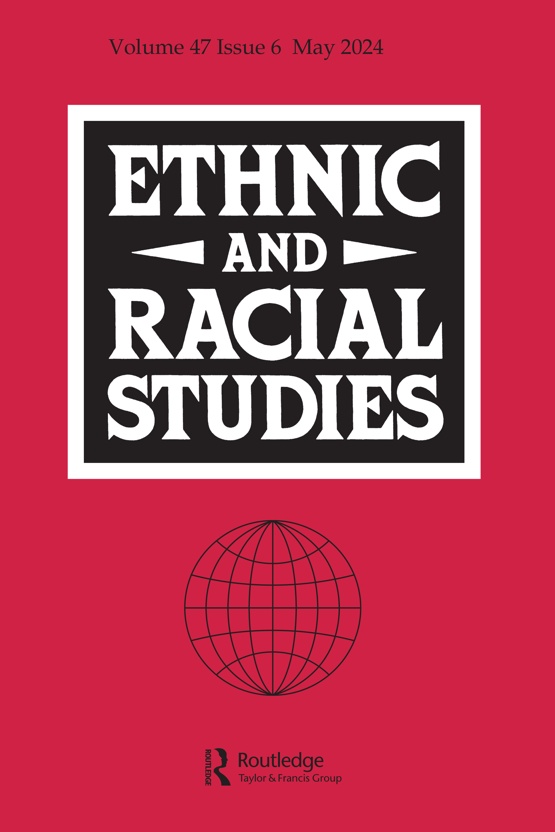Ethnic and Racial Studies
Call for Special Issue Proposals
Ethnic and Racial Studies, an interdisciplinary journal focused on race, ethnicity and migration studies, accepts special issue proposals in the months of October and April. Proposals are welcome on all topics relevant to the journal, and in particular, those drawing on research focused on Africa, Asia, Latin America and the Caribbean, Indigeneity, and issues concerned with Postcolonialism and Decolonialism.
In preparing a proposal for Ethnic and Racial Studies please read the journal’s Aims & Scope. Examples of previously published Special Issues can be found on the website.
Special Issues are usually focused on a research topic or question and comprised of 10 articles plus an editorial written by the guest editors. A significant degree of coherence is expected between the contributions that should be highlighted in the editorial. Non-standard formats may also be considered such as blogs, videos, interviews.
Submitting a Proposal
Proposals for special issues can be submitted in the months of October and April. They should be sent to the Editor-in-Chief Professor John Solomos and Managing Editor Amanda Eastell-Bleakley at [email protected]
They will be reviewed by the editorial team based on fit to the Aims & Scope as well as quality, originality and coherence of the contributions and the issue as a whole. A decision can be expected in the month after submission. The journal may also ask for a revision of the proposal (e.g., to clarify certain aspects, or change the number of contributions) before it can be accepted.
Special Issue proposals should contain the following information:
Working Title
Contact details and biography of the Guest Editor(s)
Rationale, proposal origin and context including international appeal and impact in real-world as a result of the research
Preliminary table of contents
List of contributors with affiliation
Outline of papers with abstracts if available
Timetable leading up to submission to the journal
Launch events for the special issue (conference events, panels)
Publicity for the special issue (websites, newsletters, social media, networks, blogs, videos, interviews)
Any other special issues or edited books derived from the same research
Process after Proposals get accepted
Once a proposal has been accepted the Managing Editor will arrange a video meeting with the Guest Editor(s) to explain exactly how the SI process works with ERS, to firm up the timeline and to explain the guidelines for keyword optimisation, ethics requirements, referencing and of course to answer questions Guest Editors raise.
Guest editors are expected to work closely together with the Managing Editor of the journal by supporting the review process (providing suggestions for suitable reviewers, reviewing articles in later stages), communicating with the authors about deadlines, deciding the final running order of the issue, writing an editorial Introduction and helping with the promotion of the special issue once it’s published.
All Special Issue articles are peer reviewed under standard journal procedures which are available here. Contributors to the Special Issue cannot be reviewers.
Questions?
For any questions regarding the content, process or practicalities of a special issue proposal please contact Professor John Solomos or Amanda Eastell-Bleakley – [email protected]
Visit the journal website and follow us on twitter @ERSjournal for more information.
